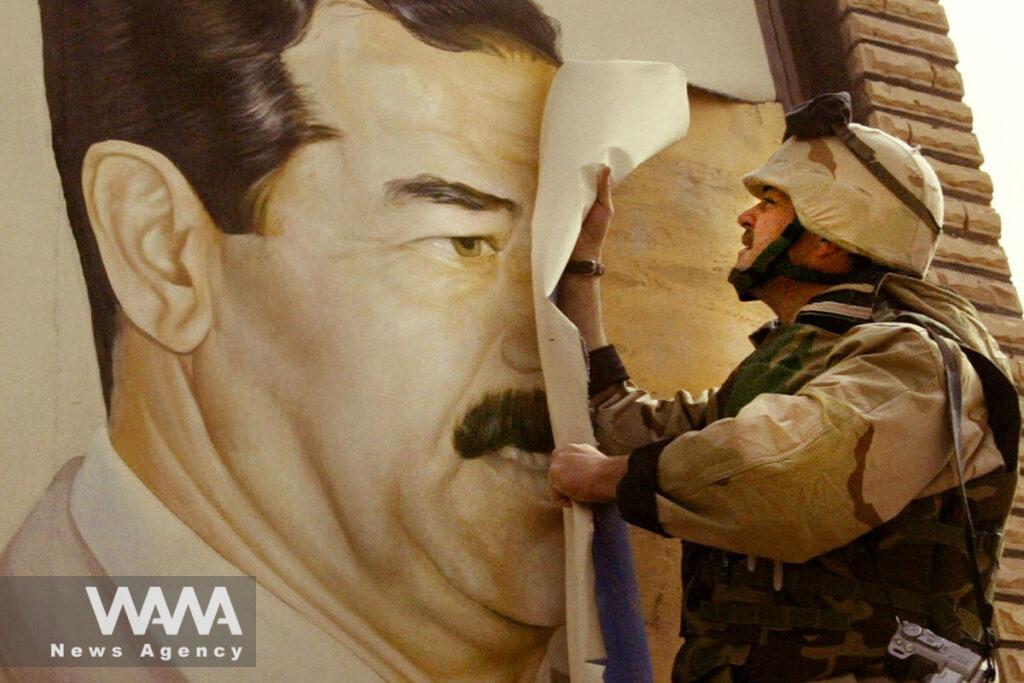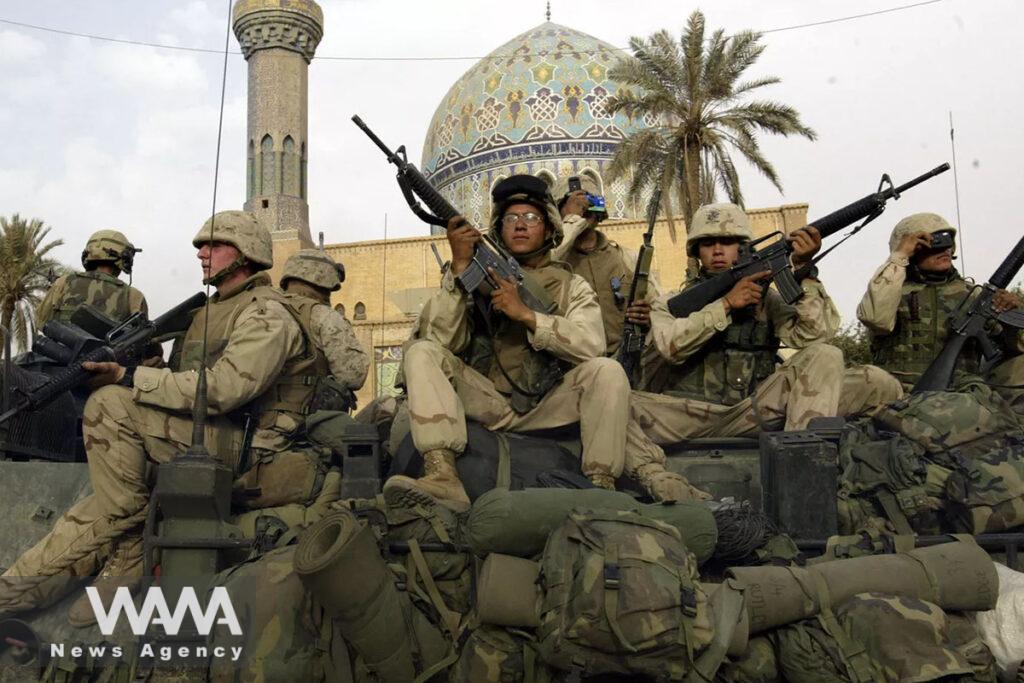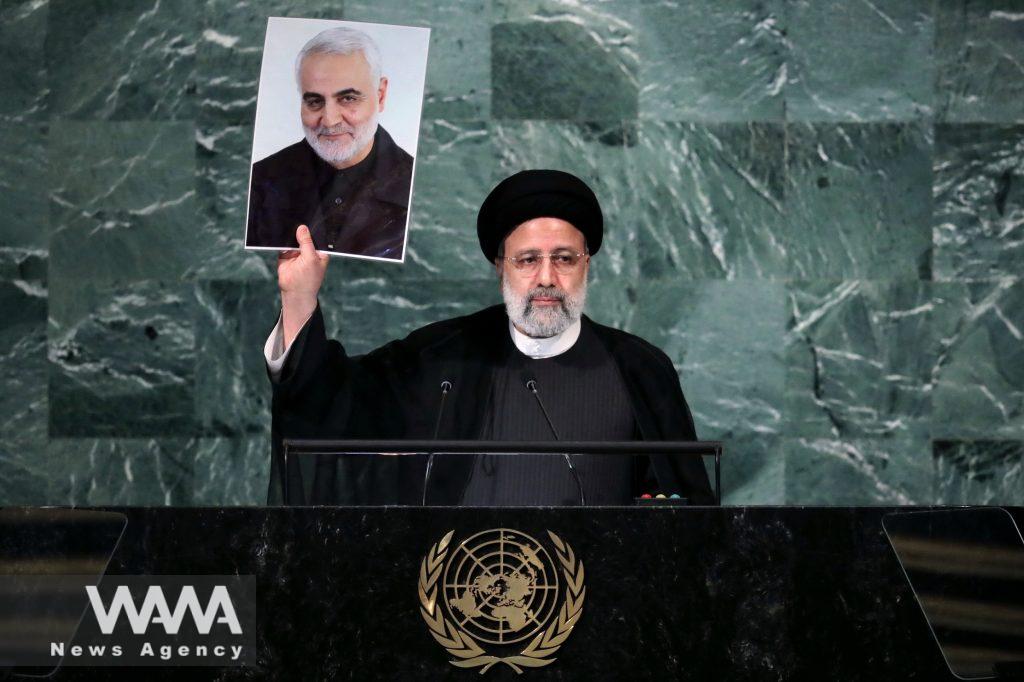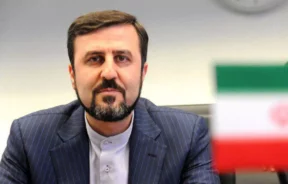US Betrayal in Iraq: Disarmament to Occupation
WANA (Feb 17) – On January 30, 2025, Iran’s Supreme Leader addressed the Air Force commanders, recalling his country’s bitter experience of trusting the U.S. The phrase “the bitter experience of trusting America” went viral among Iranians on social media. In response, WANA News Agency has launched a series of articles highlighting other nations’ painful experiences of placing their trust in the U.S.—and paying the price.
#Iran ‘s Supreme Leader:
“#Negotiating with the #US is not intelligent, rational, or honourable, and it does nothing to resolve the country’s issues. The reason? Experience!
In the 2010s, we negotiated with the U.S. and several other countries for about two years, leading to an… pic.twitter.com/tGJHp0WRI1— WANA News Agency (@WANAIran) February 7, 2025
Part One: Iraq
The Iran-Iraq War ended in August 1988 after eight years of brutal conflict. Less than two years later, on August 2, 1990, Saddam Hussein declared Kuwait a historical part of Iraq. His invasion of Kuwait was motivated by several factors: evading debts owed to Kuwait and Saudi Arabia from the war with Iran, protesting Kuwait’s alleged overproduction of oil (which lowered prices), and demonstrating power to gain domestic popularity.
Saddam believed the U.S. and other global powers would not strongly react to the invasion. This miscalculation proved disastrous. After Iraq occupied Kuwait, an international coalition led by the U.S. launched the Gulf War in 1991, forcing Iraqi troops out of Kuwait.
The war left Iraq crippled. Saddam became an isolated figure in the region, and Iraq fell under severe international sanctions, which devastated its economy for years.
Following the September 11, 2001, attacks, the U.S. adopted an aggressive stance against terrorist groups. The Bush administration alleged that Iraq had ties to al-Qaeda, the group responsible for 9/11, though no credible evidence ever supported this claim.
Under the pretext of Iraq possessing weapons of mass destruction (WMDs), Washington pushed for regime change. In reality, Saddam had no interest in war with the U.S. and was even willing to cooperate to avoid conflict. As John Nixon, the first CIA interrogator of Saddam, later revealed, by 2003, Saddam was more focused on writing a novel than governing Iraq.

From Promises to Betrayal: How Iraq Was Disarmed
On February 14, 2003, U.S. President George W. Bush demanded that Iraq destroy its Al-Samoud 2 missiles, which allegedly exceeded the allowed range. The U.S. framed this as a condition to avoid war. Less than two weeks later, on February 28, UN weapons inspector Hans Blix formally requested Iraq to dismantle the missiles. Baghdad immediately complied.
By March 6, Iraq had destroyed all Al-Samoud 2 missiles under UN supervision. This was meant to reassure Washington and prevent war—but history tells a different story.
On March 9, 2003, Hans Blix and Mohamed ElBaradei, Director-General of the International Atomic Energy Agency (IAEA), confirmed to the UN Security Council that Iraq had disarmed and recommended reviewing the sanctions. Their report contradicted U.S. claims about WMDs. But how did the U.S. respond?
Just 11 days later, on March 20, 2003, the U.S. and its allies launched a full-scale invasion of Iraq. Despite UN confirmation of Iraq’s disarmament, the U.S. occupied a country that had done everything demanded of it. No agreement, document, or diplomatic effort could stop the war.

The Aftermath: A War Built on Falsehoods
After occupying Iraq, no WMDs were ever found. Years later, then-Secretary of State Colin Powell admitted in an interview: “What I presented at the UN was a stain on my record.”
This “mistake” cost Iraq dearly: over a million deaths, total destruction of infrastructure, and the rise of terrorist groups in the security vacuum left by Saddam’s fall.
After the Occupation: Targeted Assassinations
Following the fall of Baghdad in April 2003, the U.S. promised to rebuild Iraq into a stable democracy. Instead, its first move was to dissolve Iraq’s military and security forces—leaving hundreds of thousands unemployed and fueling armed resistance.
One of the clearest violations of Iraqi sovereignty came in January 2020, when U.S. drones assassinated Iranian Quds Force commander Qasem Soleimani and Iraq’s Abu Mahdi al-Muhandis near Baghdad airport. This attack, carried out without Iraqi government approval, underscored Washington’s disregard for Iraqi sovereignty and international law.

Iran’s President Seyed Ebrahim Raisi holds up a picture of Quds Force Commander General Qassem Soleimani, who was assassinated in a U.S. attack, as he addresses the 77th Session of the United Nations General Assembly at U.N. Headquarters in New York City, U.S., September 21, 2022. WANA (West Asia News Agency) / President’s office
Economic Pressures: Washington’s New Tool to Control Iraq
U.S. influence in Iraq extends beyond military presence. Economic leverage is another key instrument. Washington has repeatedly threatened to freeze Iraq’s assets in American banks and restrict its access to the global financial system, especially after the Iraqi parliament voted for the withdrawal of foreign forces.
The U.S. has used Iraq as a strategic base to advance its regional agenda. Iraq, rather than acting as an independent player, has become a battleground for global powers.
The Iraq experience serves as a textbook example of U.S. betrayal in international agreements—disarmament followed by occupation, promises of rebuilding replaced by continued military dominance. Even full compliance was no safeguard against Washington’s invasion.
Iran’s Supreme Leader, Ayatollah Khamenei, has frequently cited Iraq’s case as a key reason for refusing negotiations with the U.S.: “We saw the result of trusting America in Libya and Iraq. First, they tell you to hand over your weapons, then they use that as a pretext for war.”
Iraq stands as a historical lesson—a nation that met every condition, only to be bombed 11 days later. What guarantee can ever prevent U.S. betrayal?












